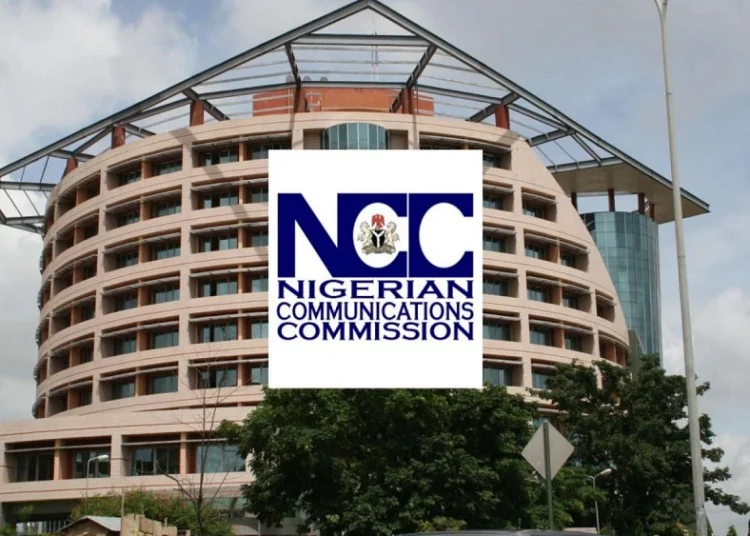More than two decades after the Nigerian Communications Act (NCA) of 2003 transformed Nigeria’s telecommunications landscape, key stakeholders have called for an urgent review of the legislation to address growing gaps and adapt to rapidly evolving digital realities.
Critical stakeholders at a high-profile colloquium organised by the House of Representatives Committee on Communications, in Lagos, on Tuesday, stressed the need to reassess the 22-year-old law to ensure it remains fit for purpose in an era defined by 5G, artificial intelligence, cybersecurity threats, and growing digital inequality.
The executive vice chairman of the Nigerian Communications Commission (NCC), Dr. Aminu Maida, said the Nigerian Communications Act of 2003 was visionary for its time, but the realities of 2025 demand a re-examination of its provisions. “We must update the legal framework to anticipate future opportunities and address today’s complex challenges,” Maida averred.
While acknowledging the Act’s role in liberalising the telecom sector, spurring growth, and catalysing digital transformation, Maida pointed out that it now struggles to accommodate present-day technological disruptions and economic shifts. He cited the sector’s impressive gains: from fewer than 300,000 mobile subscribers in 2001 to over 150 million today, and a 13.94 percent contribution to the GDP as of Q3 2024. Yet, he said, these achievements are being undermined by rising operational costs, inflation, rural connectivity gaps, and emerging cybersecurity threats.
“This colloquium must serve as a launchpad for bold reform. We need a legal and regulatory framework that not only protects consumers and fosters competition but also ensures Nigeria’s leadership in the global digital economy. Urban centres enjoy robust connectivity, while rural communities still face limited access. Operators are strained by infrastructure deficits, and consumers are demanding more affordable and reliable services. The current legal framework cannot adequately respond to these new realities,” he noted.
Echoing these concerns, the chairman, House of Representatives Committee on Communications, Rt. Hon. Peter Akpatason, emphasised the imperative for the Act to evolve alongside global digital trends. “The 2003 Act brought us this far, but now we must envision a more dynamic and responsive regulatory environment. This means confronting digital exclusion, strengthening cybersecurity, and encouraging innovation and investment in cutting-edge technologies,” Akpatason said.
The colloquium, themed “The Nigerian Communications Act 2003, 22 Years After: Reassessing the Nigerian Communications Act, Challenges, Opportunities, and Future Directions for a Digital Nigeria,” brought together regulators, industry operators, consumer advocates, academics, and lawmakers to evaluate the legislation’s strengths and gaps.
Key concerns highlighted at the event included widening digital divide between urban and rural Nigeria; Cybersecurity vulnerabilities in an increasingly digital society; Outdated regulatory tools that cannot accommodate technologies like blockchain, AI, and quantum computing; Investment disincentives due to regulatory rigidity and high infrastructure costs and Limited access to telecommunications services for underserved communities.
The speaker of the House of Representatives, Rt. Hon. Abbas Tajudeen, in his keynote message, described the colloquium as a timely step aligned with the 10th House’s legislative agenda. “This is an opportunity to reform and refocus the communications sector,” he said, stressing the role of digital infrastructure in economic growth and social inclusion.
Quoting international benchmarks, the speaker’s message delivered by the deputy chief Whip, Hon. Ibrahim Isiaka, cited World Bank and OECD studies which show strong correlations between broadband penetration and GDP growth. He noted that while digital financial services—such as Opay, Moniepoint, and Kuda—have integrated underserved populations into the economy, digital fear and cybercrime still limit broader adoption. “Cyber fraud, phishing, identity theft—these are eroding trust and impeding progress,” he warned.
The speaker also outlined several legislative efforts aimed at tackling these issues, including the Cybercrime Act (2015), Nigeria Data Protection Act (2023), and pending bills like the National Digital Economy and E-Governance Bill. He confirmed the National Assembly’s intent to amend the Nigerian Communications Act as part of its ongoing digital transformation agenda.
As deliberations continue, expectations remain high that the colloquium will produce a framework that not only reflects today’s digital realities but also anticipates future demands in Nigeria’s pursuit of a more inclusive and globally competitive communications sector.
Stakeholders therefore called for a comprehensive revision of the Act that would foster innovation through public-private partnerships, research and development initiatives, and incentives for digital entrepreneurship.





